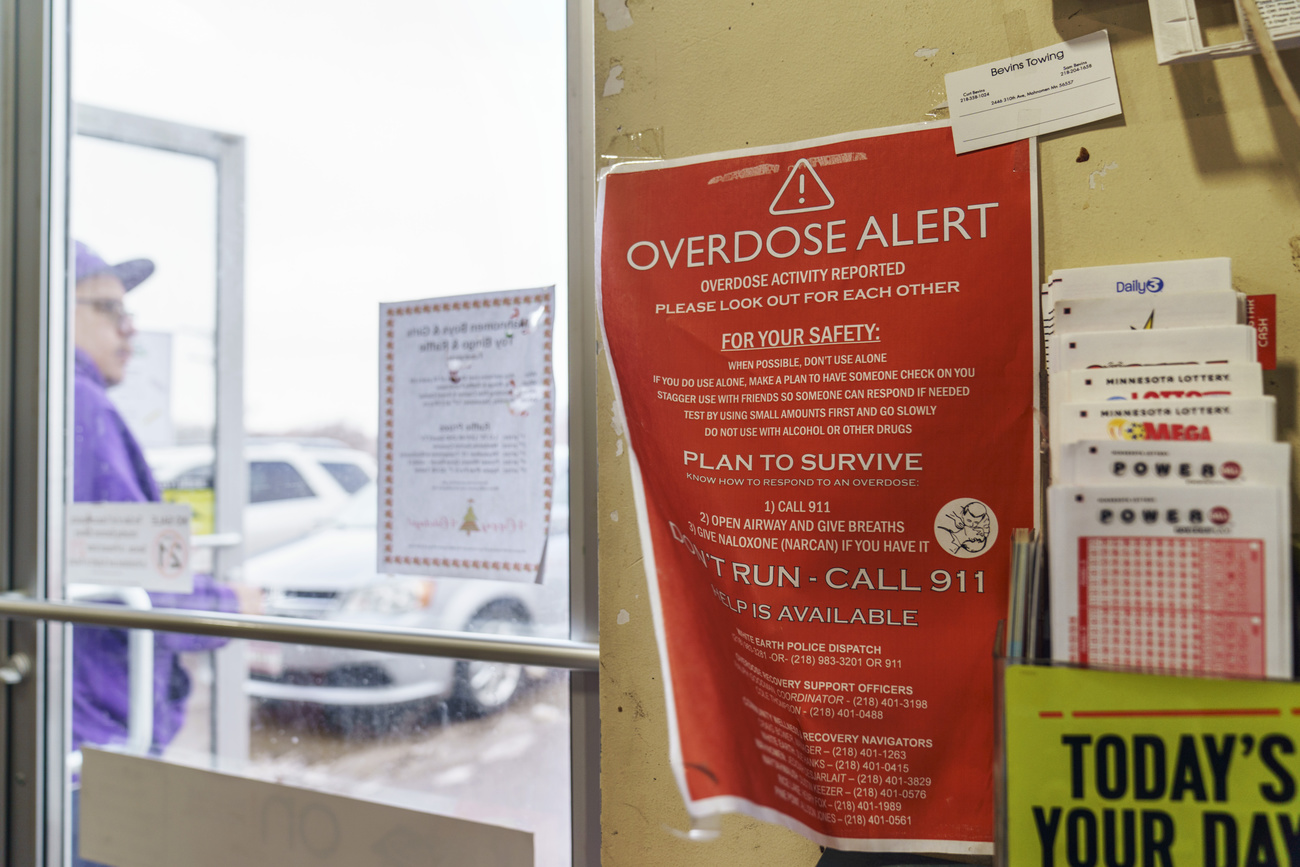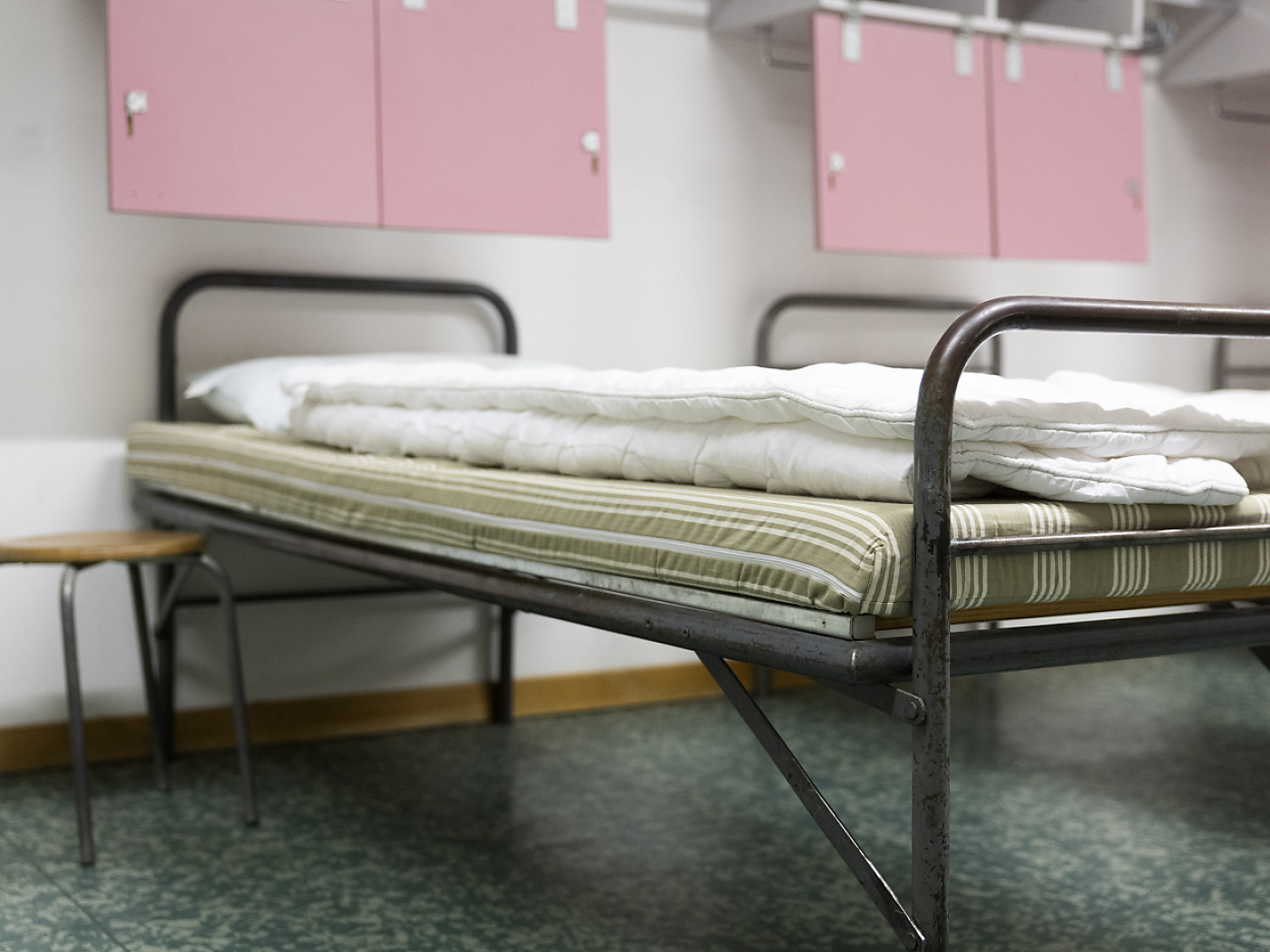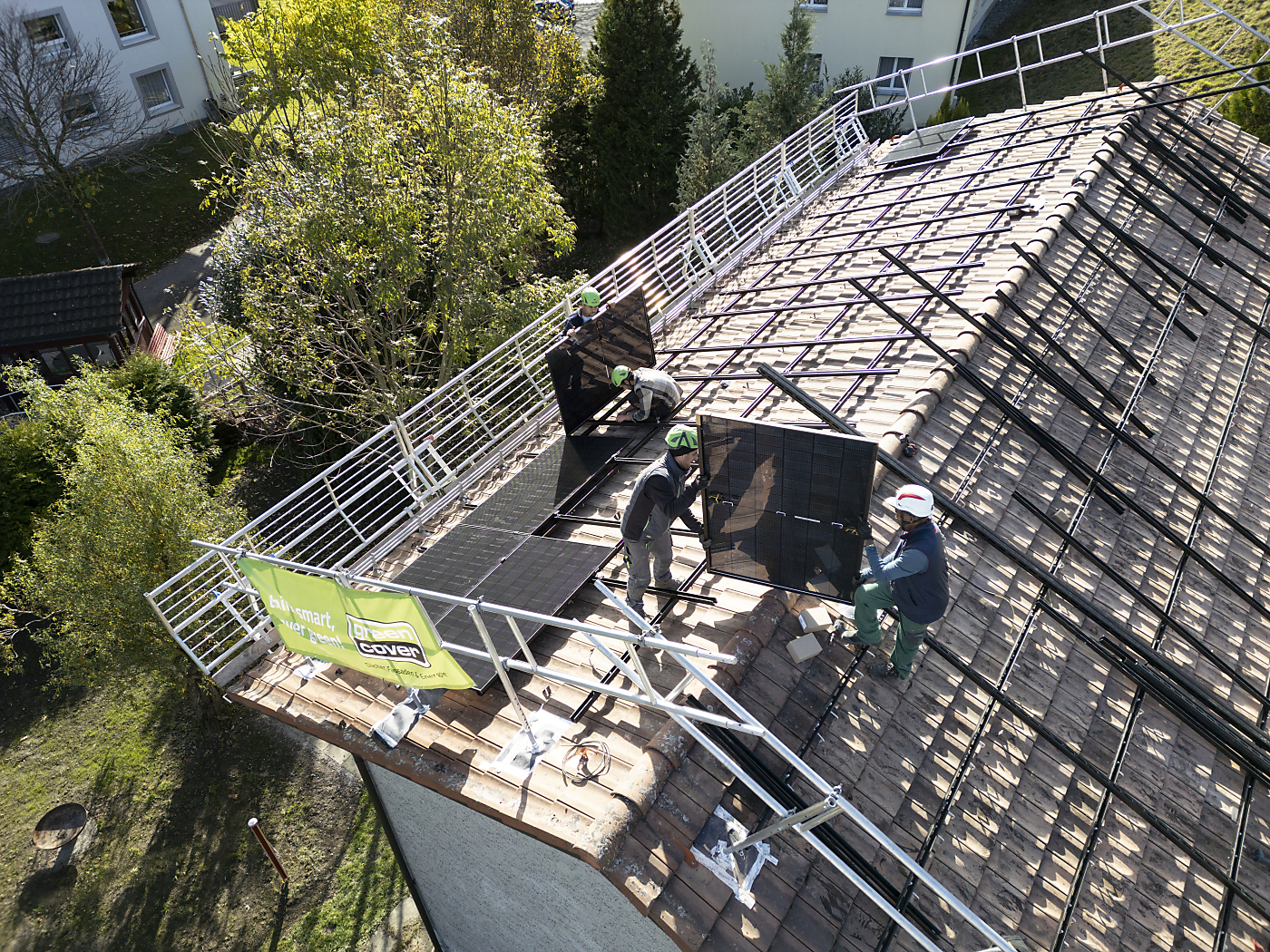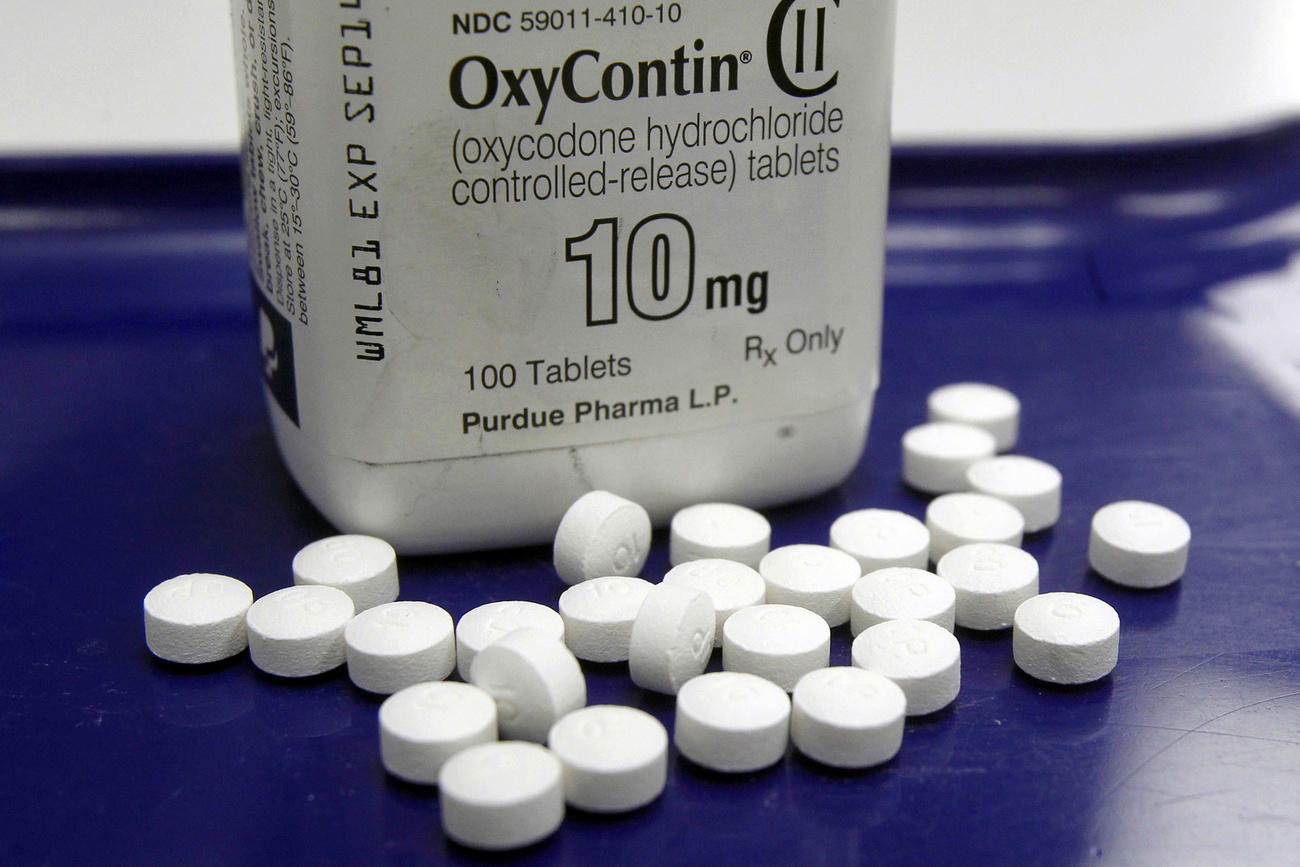Expert warns of an opioid crisis in Switzerland

A Swiss psychiatric expert urges caution over prescription pills that can pave the way for an opioid addiction crisis like the one North America experienced.
“At the beginning of the misery in North America was the painkiller oxycodone. Prescriptions and recreational use of the same have also increased in Switzerland,” says Marc Vogel, head of a centre for addiction disorders at the University Psychiatric Clinics in Basel. “Should [the opioid] fentanyl also appear on the black market in Switzerland, I don’t see why we should be spared a crisis.”
In remarks published by the Tages-Anzeiger newspaper on Saturday, the expert says that Switzerland needs to pay close to attention to a particular kind of addict: patients who are prescribed an opioid painkiller for chronic pain and end up developing a serious addiction problem.
+ Opioids increasingly prescribed for minor injuries
An aggressive pharmaceutical lobby, careless doctors and billions of prescriptions pills set the stage for the opioid crisis that began in North America in the early 2000s and is still underway. Millions of people are still addicted to opioids, mostly to the extremely powerful and cheap to produce fentanyl.
Fentanyl is a man-made opioid that is around 50 times more potent than heroin, making it easier to smuggle. It is typically used by people addicted to painkillers. In North America, illicit fentanyl experienced a huge resurgence after oxycodone prescriptions were curtailed. The dependent patients found themselves forced almost overnight to switch to substances such as heroin or fentanyl. In the US, more than 100,000 people died from an opioid overdose in 2021.
Vogel is not the only Swiss expert to sound the alarm. The risk of an opioid crisis in Switzerland “must not be underestimated”, according to the results of a research group led by professor Andrea Burden of the federal institute of technology ETH Zurich. The team analysed the numbers of emergency calls regarding opioid poisoning to Tox Info Suisse, the Swiss poison information centre. It also examined sales figures from pharmacies that are authorised to dispense such drugs.
Prescriptions surge
The numbers, noted the Swiss German-language newspaper, show a strong upward trend. In 2000, 1.4 calls per 100,000 people were received because of opioid poisoning. Twenty years later it was more than 2.5 times as many. Over a third of the calls related to the powerful and addictive painkiller oxycodone, which started the misery in the US. The sales figures in Switzerland have almost doubled in the period under review.
Vogel says the situation in Switzerland is unlikely to become as dire as in North America, but doctors need to remain vigilant.
“We are currently at a prescription surge like we were in the US in the early 2000s. At the same time, other European countries are showing that fentanyl is on the rise,” notes the expert. “Anyone who takes opioid-containing drugs for longer than a few weeks increases the risk of addiction.”
Burden hopes “we can learn something from the situation in other countries and hopefully prevent a fentanyl epidemic”. She is conducting a second study to find out how many people in Switzerland have already developed an addiction through a doctor’s prescription and how many have died from an opioid.

In compliance with the JTI standards
More: SWI swissinfo.ch certified by the Journalism Trust Initiative




















You can find an overview of ongoing debates with our journalists here . Please join us!
If you want to start a conversation about a topic raised in this article or want to report factual errors, email us at english@swissinfo.ch.